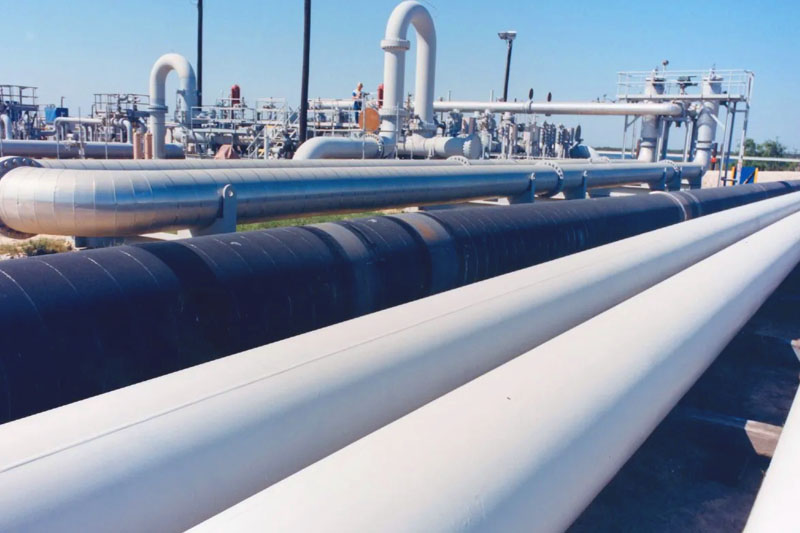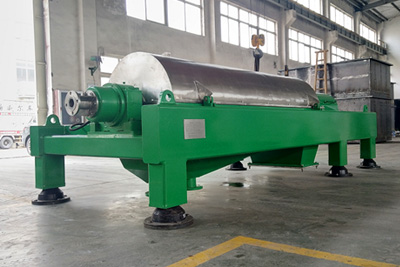Article -> Article Details
| Title | Everything You Need to Know About Industrial Centrifuge Machines |
|---|---|
| Category | Business --> Chemicals |
| Meta Keywords | Industrial centrifuge machine |
| Owner | Reyes Machinery |
| Description | |
| With the contemporary industrialized world and its rapidity, the issues of efficiency and precision are of paramount importance to retain the competitive advantage. The industrial centrifuge is one of the equipment that has been an inseparable part of several spheres. In the field of chemical processing, wastewater treatment, pharmaceutical manufacturing, and food manufacturing, an industrial centrifuge is important in the separation process of substances in terms of density, which guarantees uniformity and quality in production. Business organizations must understand the various types, capacities and functionalities of centrifuge machines to optimize their operations and minimize wastage. Understanding Industrial Centrifuge Machines An industrial centrifugal centrifuge is a machine that is set to separate solids or liquids or various liquids in terms of their densities using centrifugal force. These machines have high speeds and the force generated is many times greater than the force of gravity and this makes them effective in separation. A centrifuge machine can be used on a broad variety of materials depending on the industry; viscous liquids in the chemical plant, fine solids in a mine, etc. These machines are designed and built in different ways; some are configured to run continuously, and others to batch process. When the right centrifuge machine is invested in, it may create a great deal of productivity and a decrease in operational downtime. Industrial Centrifuge Equipment: Types and ApplicationsIndustrial centrifuge equipment is a broad term that refers to various kinds of machines that are specified in terms of separation requirements. Commonly used are decanter centrifuges, disc-stack centrifuges, and tubular bowl centrifuges. Decanter centrifuges are designed to be used in high volumes of solid-liquid separation and are commonly used in wastewater treatment and chemical processing. The Disc-stack centrifuges are used in the food, beverage and pharmaceutical industry to efficiently separate fine particles. Tubular bowl centrifuges are less popular, but they provide very high separation efficiency, applicable to specialized services, like high-purity chemical production. Choosing appropriate centrifuge equipment type varies depending on the characteristics of the material to be used, the throughput issues, and the required separation efficiency. Determining Industrial Centrifuge Capacity Capacity is one of the most significant factors to consider during the choice of an industrial centrifuge. The centrifuge capacity is the amount of material that a centrifuge is able to handle within a specific time frame; it is normally expressed in liters per hour or gallons per minute. It is important to select the right capacity: any centrifuge with insufficient capacity will slow down the production process, whereas excessive capacity can be unnecessarily costly and consume energy. The manufacturers usually give guidelines on the centrifuge capacity matching the production line requirements. The factors affecting the capacity are the solids concentration, water-solids flow rate, particle size, and the liquid viscosity. Advantages of Industrial Centrifuge MachinesCentrifuge machines have a lot of advantages that render them invaluable in the industries. To begin with, they are very efficient in the separation of materials, thus, the purity and quality of products. Second, these machines can work high quantities of materials with little labor, hence lowering the cost of operation. Moreover, the modern centrifuge machines are energy efficient, produce less noise, and are easy to maintain and thus they are environmentally friendly and cost-effective in the long run. The other major benefit is the versatility; industrial centrifuge machine can process a large variety of substances, including slurries, emulsions, liquids with high viscosity, and even fine powders, and can be modified to suit changing production needs. Maintenance and Operational ConsiderationsCentrifuge machines that are used in industries should be properly maintained to guarantee durability and precision in performance. The operators must check bearings, seals and drive systems frequently and also make sure that the rotor is balanced in order to avoid vibration. Cleaning should be done regularly to prevent contamination, particularly in food, pharmaceutical, and chemical industries. The automation and monitoring systems have also simplified operational parameters monitoring, like rotational speed, temperature, and throughput, to enable proactive intervention to prevent problems before they deteriorate. It is also essential to train the staff on how to use the equipment and the safety measures, as centrifuge machines can be very fast and dangerous in the wrong hands. ConclusionThe choice of the appropriate equipment is not limited to addressing the present production requirements only, but a commitment to increasing efficiency in the long run. Evaluating the production needs, learning about the material properties, and taking into account the space and energy at their disposal, companies will be able to select a solution that will ensure maximum throughput, minimum downtime, and minimum operational costs. To have good and quality machinery, REYES MACHINERY has a variety of selections which are aimed at serving various industry requirements and also maintaining quality performance and timelessness. FAQsQ1: Which industries are good for the use of centrifuge machines? Separation is usually applied in chemical processing, pharmaceuticals, food and beverage, wastewater treatment, oil and gas and mining industries with the help of these machines. Q2: What am I to do to know what the correct machine capacity is? Capacity is related to the feed flow rate, concentration of material, particle size and viscosity. To coordinate your production needs with the right size, it is advisable to consult with the suppliers. Q3: What maintenance is needed in this kind of equipment? Frequent checking of bearings, seals and rotors, cleaning of the machine, balancing of the rotor and observation of the parameters of operation are necessary to ensure the best performance. | |
